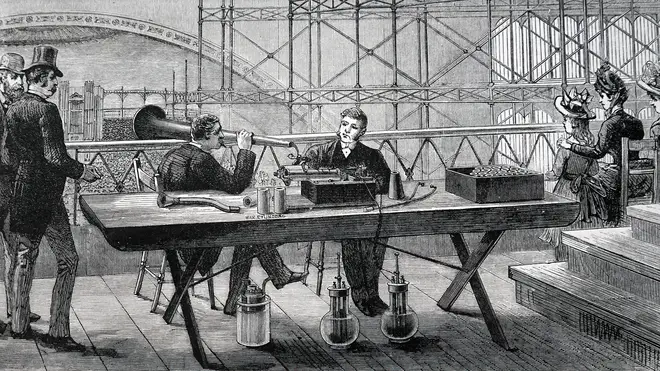On Air Now
Classic FM Breakfast with Tim Lihoreau 7am - 9am
30 June 2023, 20:45

Etched onto a wax cylinder 135 years ago – this is the earliest known recording of classical music.
In London, on a Friday afternoon in Crystal Palace in 1888, the first recording of a piece of classical music was made.
The work was Handel’s biblical oratorio Israel in Egypt, and it was etched onto a number of wax cylinders – one of the earliest commercial mediums for recording sound, and the most popular of the time.
A few choruses from the oratorio were recorded, including ‘He Rebuked the Red Sea’, ‘He Led Them Through the Deep’ and ‘He is My God’. (You can have a listen to a much more recent recording of them with the Voices of Classic FM, The Sixteen, here on Spotify.)
The ensemble was substantial, with orchestra of around 500 musicians performing alongside over 4,000 voices conducted by Sir August Manns, for an audience of 23,722 people.
It was part of the Handel Festival, which took place once every three years in the UK at the time. This concert, on 29 June 1888, took place 129 years after Handel’s death, in 1759.
Read more: The sound of a song in 1888 – listen to one of the earliest musical recordings known to exist

Edison phonograph cylinders (1888): Handel - Israel in Egypt
It’s not the easiest to make out, but you can just about hear the voices of the choruses peeking through the sound of the engraving (listen above).
11 years earlier, in the year 1877, Thomas Edison and his team had created the phonograph using a thin sheet of tin foil, which in the end turned out not to be the most practical medium for recording sound.
After seven long years of research, wax was developed as the new recording medium – and this time, engraving was used as the recording method.
These choruses were recorded as a means of testing and demonstrating Edison’s latest exciting invention.
Later that same year, British composer Arthur Sullivan’s song ‘The Lost Chord’ was etched onto a phonograph cylinder in August 1888. Sullivan was astounded at this new technology, but had his reservations.
At the time he said: “I can only say that I am astonished and somewhat terrified at the result of this evening’s experiments: astonished at the wonderful power you have developed, and terrified at the thought that so much hideous and bad music may be put on record forever.”
Discover more early recordings here >